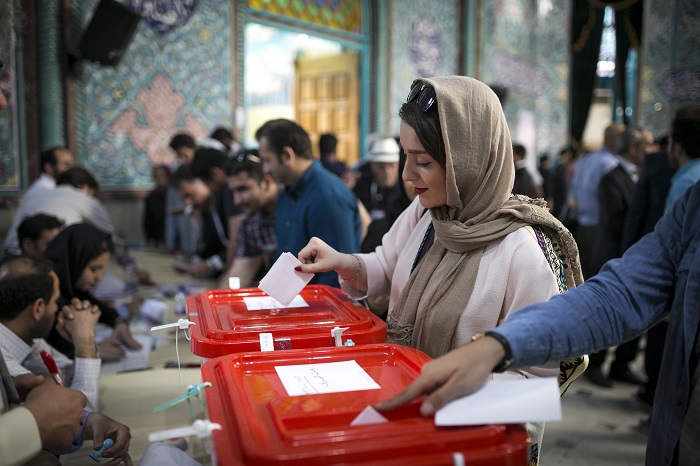Iranians vote for president in high turnout
Published : 20 May 2017, 03:05
Updated : 20 May 2017, 03:08
Large number of Iranians lined up in the polling stations on Friday to decide on the presidential seat for the next four years.
The election began on Friday morning at 8:00 a.m. local time (0330 GMT) as Supreme Leader Ayatollah Ali Khamenei cast his vote in the ballot box.
Iran's Interior Ministry extended the voting time by six hours until 24:00 p.m. local time (1930 GMT) due to the high turnout in the election.
On Friday, Khamenei urged Iranians to actively participate in the election and go to the polling stations for the vote at the earliest time.
The election of the president is important in the Islamic republic and the people should take note of this point, Khamenei said in a live TV broadcast.
He also hailed the elections as the sign of democracy in Iran.
Some 56 million Iranians were eligible for voting, and over 60,000 ballot boxes had been prepared nationwide to receive votes.
On April 21, out of 1,636 registered candidates, six qualified to compete for the four-year presidential term, including three principalists, better known as conservatives, as well as two centrists and one reformist.
On Tuesday, Iran's reformist Vice President Eshaq Jahangiri announced his withdrawal from the race in order to back incumbent President Hassan Rouhani, urging all his supporters to vote for Rouhani.
Tehran's Mayor Mohammad Baqer Qalibaf, a conservative candidate, said in a statement on Monday that he withdrew from the presidential race to back Raisi.
On Thursday, Iranian Interior Ministry officially announced the names of incumbent Hassan Rouhani, Ebrahim Raisi, Mostafa Agha-Mirsalim and Mostafa Hashemi Taba as the four hopefuls for the Friday presidential election.
Over the past days, the prevailing themes of the debates in the Iranian political scene revolved around either reform-oriented topics or subject matters which principalists, commonly referred to as conservatives, pursue.
Incumbent President Hassan Rouhani and conservative Ebrahim Raisi, the main rivals in the race and both the confidants of the Islamic establishment, represented different schools of political thoughts.
The centrists, led by the Rouhani, are hoping not to lose their current sovereignty over the conservatives.
If no candidate garners more than 50 percent of the votes, a run-off will be held on May 26 between the top two vote-getters.


